How To Use Rose Water For Acne
Use it alone or with other ingredients - learn how to make the most of rose water.
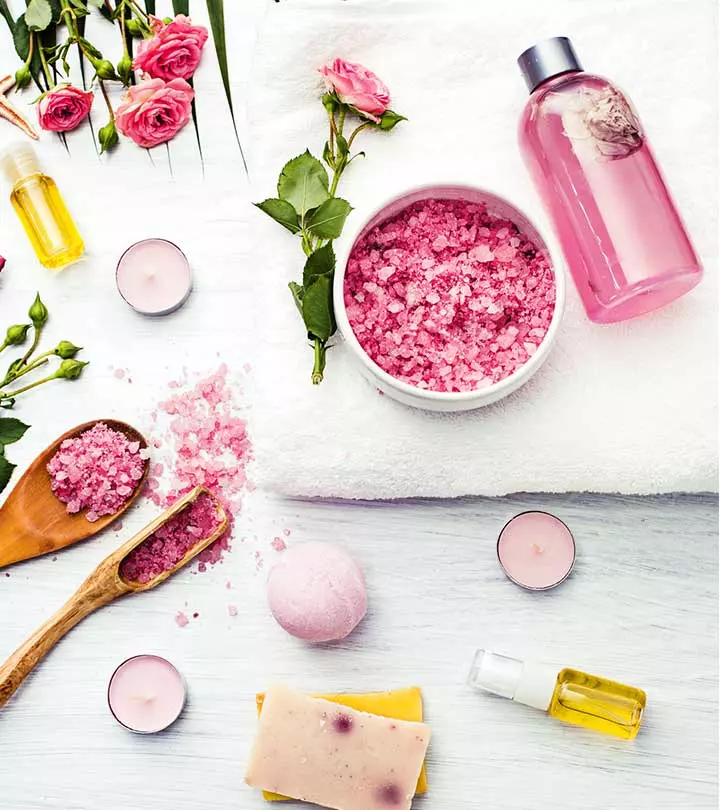
Image: ShutterStock
We all would have used rose water as a gentle toneri A lotion or tonic formulated to cleanse the skin, moisturize, and shrink the appearance of pores on the face. . But not everyone knows we can also use rose water for acne management. Yes, it is a powerful beauty ingredient that helps manage acne issues. The several benefits of rose water include balancing the skin pH level, removing makeup, irritation relief, soothing irritation, and calming inflammation (1). But how does rose water help treat acne? Let us find that out here. Keep reading to know more about rose water and its use for acne management.
In This Article
Is Rose Water Effective Against Acne?
Rose water has antiseptici A compound applied to the skin or tissue that stops or slows down the growth of microorganisms. and antimicrobiali A property or substance that kills or stops the growth of disease-causing microorganisms like bacteria or mold. properties that make it an efficient anti-acne ingredient (2). Not only does the water help kill off acne-causing bacteria but it also helps heal your scars and clear out your skin. This ingredient, unlike most suggested topical treatments for acne – prone skin, is extremely gentle on your skin. In fact, it does not cause any irritation even when used on sensitive skin. In addition to this, rose water has a cooling effect that aids redness reduction and soothes skin discomfort. It also helps unclog your pores and controls oil production preventing future breakouts (3). It may even act as a pore minimizer. But rose water alone cannot control acne. Hence, use it only as a supplementary home remedy.
Here, we’ve put together a list of the 11 different ways you could use pure rose water for the face to treat acne.
How To Use Rose Water For Acne
Using rose water for the face has many benefits, including the management of issues like acne. Find below some wholesome methods incorporating rose water to effectively fight acne and achieve clear skin.
1. Rose Water Face Spray For Acne
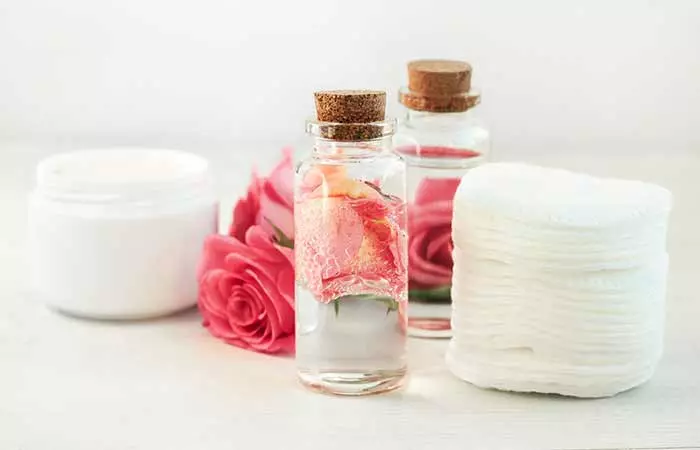
You Will Need
- Pure rose water
- Spray bottle
- Facial cleanser
- Non-comedogenici A property or a beauty product that helps reduce acne and inflammation without clogging the skin pores. moisturizer
- Tissue
Time
2 minutes
Method
- Clean your face with a facial cleanser and pat dry.
- Fill a spray bottle with pure rose water.
- Spritz the water onto your face. Wait for 20 seconds and then wipe it off with a tissue.
- Moisturize your face with a non-comedogenic moisturizer.
- Spritz your face whenever you feel the need to throughout the day.
How Often?
3-4 times a day.
Why This Works
Rose water has excellent antibacterial and pH balancing properties. It also helps get rid of excess oil and the buildup of dirt from your skin and pores. Using rose water for skin care helps keep acne at bay (4).
Candra, a beauty blogger, shares, “I keep rosewater in a spray bottle and give my face a spritz in the morning and afternoon. It wakes me up in the morning and relieves stress after a long day in the office (i).”
 Quick Tip
Quick Tip2. Vitamin C And Rose Water For Acne
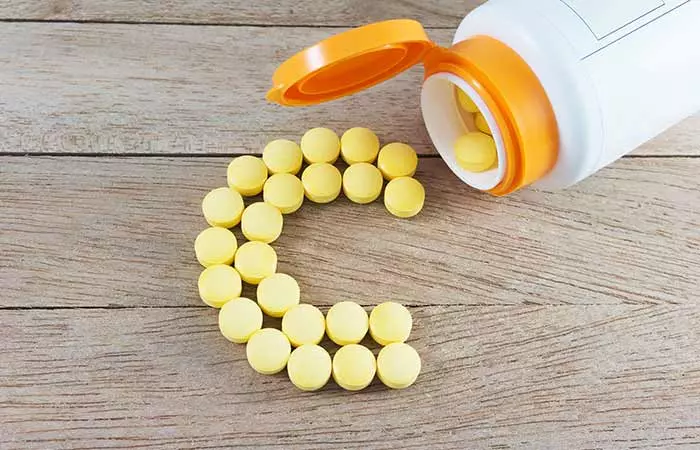
You Will Need
- 1 tsp powdered vitamin C tablets
- 1 tsp pure rose water
- Facial cleanser
Time
10 minutes
Method
- Clean your face with a facial cleanser.
- Combine the powdered vitamin C tablets and rose water until you get a smooth mixture.
- Apply this mixture onto the affected areas of your skin.
- Leave it on for about 10 minutes and then rinse off with cool water.
- Pat your skin dry.
How Often?
Once a day.
Why This Works
Vitamin C is rich in antioxidants that help fight skin damage.
It also has strong anti-inflammatory properties that help get rid of pimples faster. The vitamin helps boost the production of collageni Protein the body produces, which plays an important role in the function and structure of bones, skin, cartilage, and connective tissue. , which helps heal acne scars (5). with its healing properties.
3. Lemon Juice And Rose Water For Acne
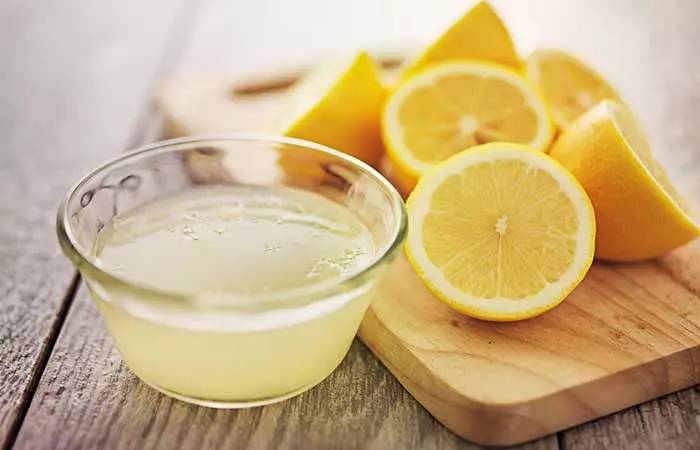
You Will Need
- 1 tsp lemon juice
- 1 tsp pure rose water
- Cotton pad
- Facial cleanser
Time
15 minutes
Method
- Wash your face with a facial cleanser and pat dry.
- Dilute the lemon juice with the rose water and then saturate a cotton pad with the mixture.
- Use the cotton pad to apply the mixture onto your face.
- Leave the mixture on for 15 minutes and then wash your face with cool water.
How Often?
3-4 times a week until the acne subsides.
Why This Works
Lemon juice is extremely rich in vitamin C, and so makes for a great alternative to the powdered vitamin C treatment. It is also a rich source of antioxidants that help keep your skin looking healthy, young, and radiant. It may have astringent properties that help with oil control. Vitamin C has skin brightening properties that may aid blemish control. The ingredient is also a mild lightening agent that helps fade acne scars (5), (6), (7).
4. Glycerin And Rose Water For Acne
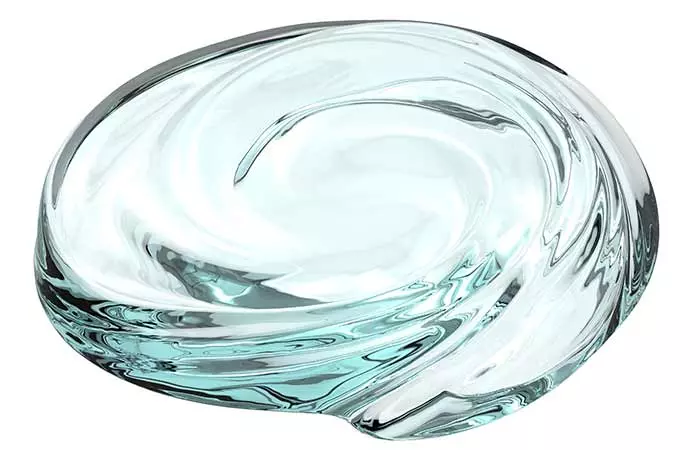
You Will Need
- 1 ½ cup pure rose water
- ¼ cup glycerin
- Facial cleanser
- Moisturizer
- Cotton pad
Time
2 minutes
Method
- Clean your face with a facial cleanser.
- Combine the glycerin and the rose water in a jar.
- Saturate a cotton pad with the mixture.
- Dab this mixture onto your face with the cotton pad. Let it dry.
- Apply moisturizer.
How Often?
1-2 times a day.
Why This Works
This remedy is ideal for people with dry skin and acne. The glycerin keeps your skin from drying out while it also helps remove dirt and oil (8). The combination helps unclog and refine your pores, minimizing breakouts.
5. Multani Mitti And Rose Water Face Mask For Acne
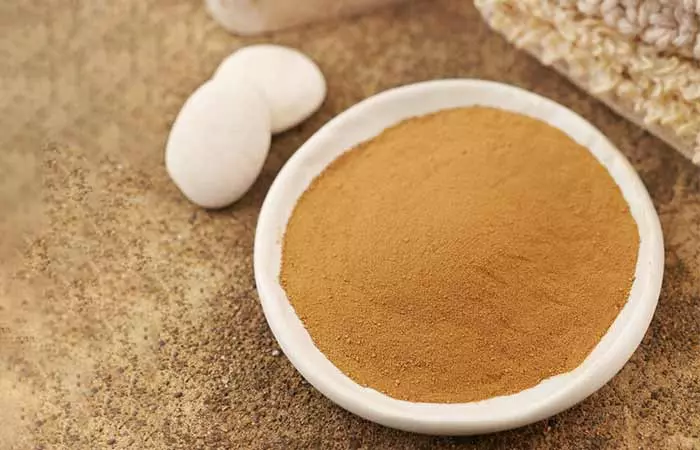
You Will Need
- 1 tbsp multani mitti
- 1 tbsp pure rose water
- Facial cleanser
Time
15 minutes
Method
- Clean your face with a facial cleanser.
- Combine the multani mitti and rose water until you get a smooth paste.
- Apply this mixture onto your skin like a face pack and let it dry.
- Once dry, rinse the pack off of your face with cool water.
How Often?
2- 3 times a week.
Why This Works
Multani mitti is loaded with essential minerals that help nourish your skin and improve its health. The mask helps draw out excess oil and impurities from your skin, killing acne and giving your skin a fresh start (9).
6.Baking Soda And Rose Water For Acne
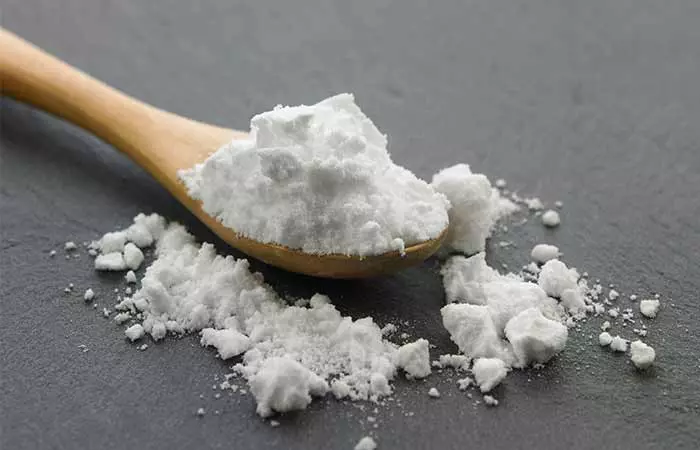
You Will Need
- 2 tsp baking soda
- 2 tsp pure rose water
- Facial cleanser
Time
1 minute
Method
- Clean your face with a facial cleanser.
- Combine the baking soda and the rose water to get a smooth paste.
- Apply this paste onto your skin.
- Gently massage your skin in circular motions to help exfoliate.
- Wash the baking soda off with cool water after a minute of massaging.
How Often?
2-3 times a week.
Why This Works
Baking soda is an excellent exfoliating agent that helps get rid of excess oil, dirt, and dead skin. This, by itself, cuts the possibility of a breakout by making your skin an unfavorable environment for acne. This treatment also helps balance the pH of your skin. However, it is important to remember that baking soda is slightly more alkaline than the natural pH of the skin, so it needs to be used with caution and avoided if there are cuts or scratches on the skin (10).
 Quick Tip
Quick Tip7. Apple Cider Vinegar And Rose Water For Acne
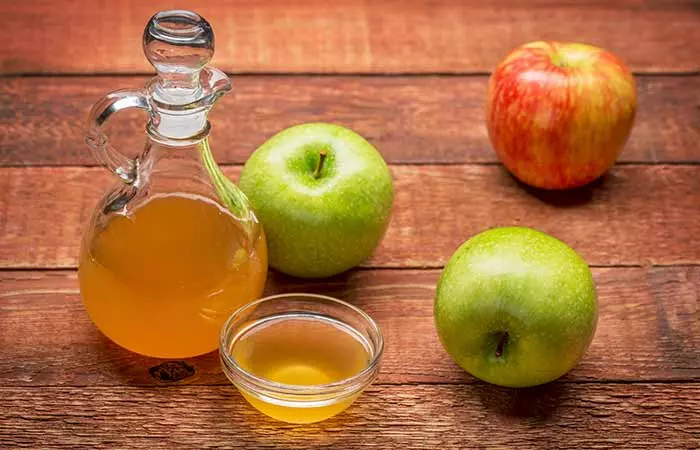
You Will Need
- 2 tsp apple cider vinegar
- ½ cup pure rose water
- Facial cleanser
- Cotton pad
- Non-comedogenic moisturizer
Time
2 minutes
Method
- Clean your face with a facial cleanser.
- Combine the apple cider vinegar and the rose water in a jar.
- Saturate a cotton pad with the mixture.
- Dab this mixture onto your face with the cotton pad. Let it dry.
- Apply moisturizer.
How Often?
1-2 times a day.
Why This Works
This treatment is ideal for people with oily skin. The apple cider vinegar helps control oil production while giving your skin an antioxidanti A substance that can prevent oxidation and delay cell damage caused by free radicals and other pollutants. boost (11), (12). This also helps unclog and refine your pores, preventing future breakouts.
8. Besan And Rose Water For Acne
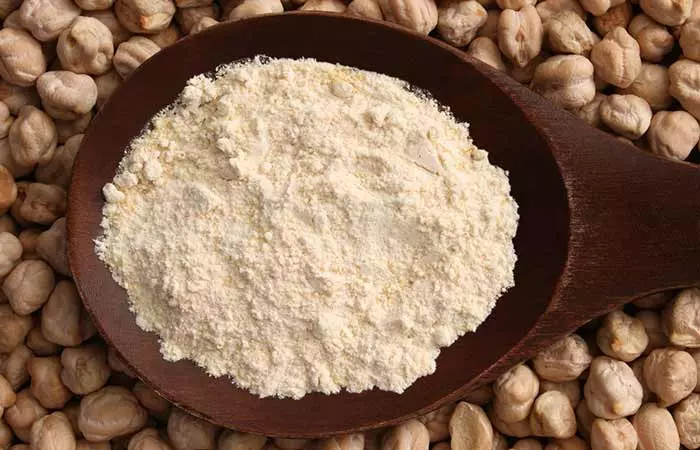
You Will Need
- 1 tbsp besan
- 1 tbsp pure rose water
- Facial cleanser
Time
15 minutes
Method
- Clean your face with a facial cleanser.
- Combine the besan and rose water until you get a smooth paste.
- Apply this mixture onto your skin like a face pack and let it dry.
- Once dry, rinse the pack off of your face with cool water.
How Often?
1-2 times a week.
Why This Works
This face pack helps deeply cleanse and unclog your pores. It also helps get rid of dead skin cells and refine the size of the pores. Besan helps draw out excess oil from your skin, reducing the size of your pimples (9).
9. Witch Hazel And Rose Water For Acne
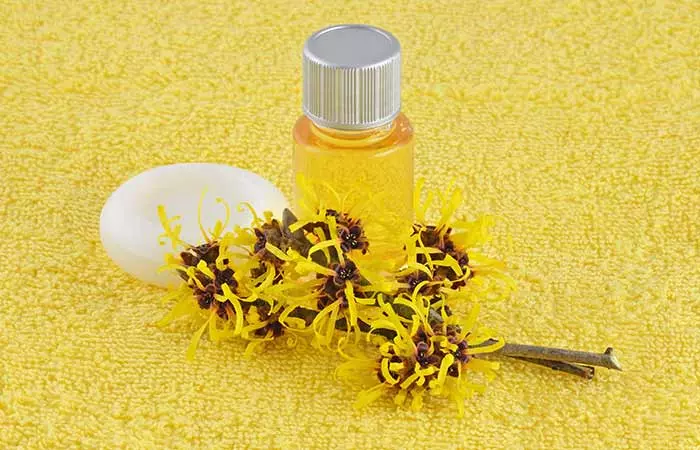
- 1 tsp witch hazel
- 1 tsp pure rose water
- Cotton pad
- Facial cleanser
- Non-comedogenic moisturizer
Time
2 minutes.
Method
- Clean your face with a facial cleanser.
- Combine the witch hazel and the rose water in a jar.
- Saturate a cotton pad with the mixture.
- Dab this mixture onto your face with the cotton pad. Let it dry.
- Apply moisturizer.
How Often?
1-2 times a day.
Why This Works
Witch hazel helps reduce skin inflammations while boosting your skin’s ability to heal wounds. It also helps relieve itching and aggravation (1). This homemade toner will help keep your skin clean, healthy, and free of pimples.
10. Sandalwood And Rose Water For Acne
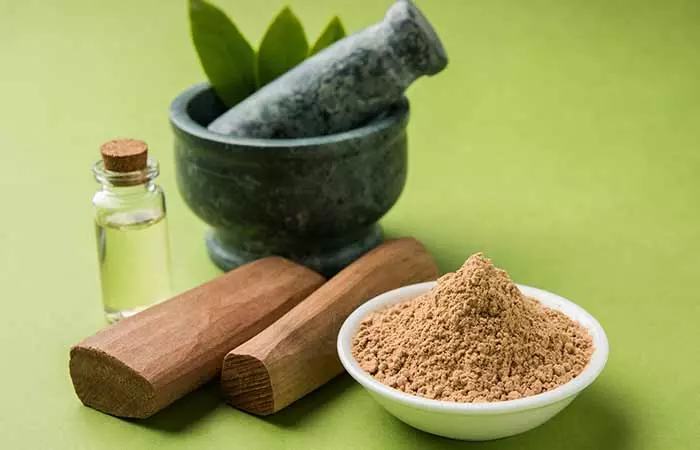
You Will Need
- 2 tbsp sandalwood powder
- 1 tbsp rose water.
- Facial cleanser
Time
15 minutes
Method
- Clean your face with a facial cleanser.
- Combine the sandalwood powder and rose water until you get a smooth paste.
- Apply this mixture onto your skin like a face pack and let it dry.
- Once dry, rinse the pack off of your face with cool water.
How Often?
1-2 times a week.
Why This Works
Sandalwood is an Ayurvedic ingredient that helps treat a number of different skin problems including acne. It does so by reducing inflammation and skin soothing effect while drawing out excess oil and dirt (13), (14).
11. Cucumber, Honey, And Rose Water For Acne
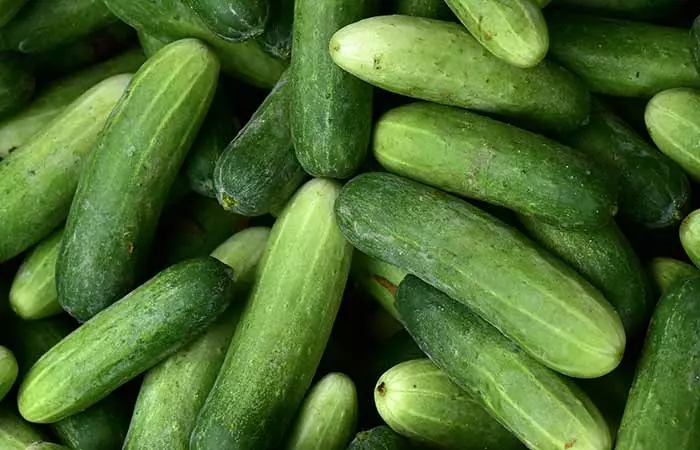
You Will Need
- 2 inches fresh cucumber
- 2 tbsp honey
- 1 tbsp rose water
- Facial cleanser
Time
30 minutes
Method
- Clean your face with a facial cleanser.
- Blend the cucumber and to it add the honey and rose water.
- Apply this mixture onto your skin like a face pack and let it dry.
- Once dry, rinse the pack off of your face with cool water.
How Often?
1-2 times a week.
Why This Works
This face pack is perfect for women with sensitive skin. Not only is it extremely mild but it helps battle acne with its excellent antiseptic (from honey) and antibacterial (rose water) properties (15), (16). The cucumber has a calming effect on inflammation and redness (17).
12. Tea Tree Oil And Rose Water For Acne Scars
You Will Need
- ½ cup of rose water
- 10 drops of tea tree oil
- Cotton pad
Time
30 minutes
Method
- Pour the rose water in a bowl.
- Add the tea tree oil to it.
- Cleanse your face with a mild face wash.
- Apply the blend to the affected area using a cotton pad.
- Leave it for 20 minutes.
- Rinse it off with warm water.
- Pat dry and follow it with moisturizer.
How Often?
1-2 times a week.
Why This Works
Tea tree oil has antimicrobial and antibacterial properties that may help prevent acne bacteria. According to a study, it was found that 5% tea tree oil helped reduce acne lesions (18). Combined with the antibacterial and soothing properties of rose water, it may help reduce the appearance of acne scars.
There are a number of ways you can incorporate rose water into your skin care routine for acne-prone skin. If not available commercially, you can also learn how to make rose water at home. There are a few ways you can do it conveniently, like crushing the petals or distilling them. This is an effective natural solution for acne-prone skin and certainly worth your time.
Infographic: 3 Ways To Use Rose Water For Acne
Rose water is an incredibly versatile ingredient and has a long history of being used for skin hydration, treating acne, and maintaining the skin’s pH balance. It is well-known for its beneficial antimicrobial and antiseptic properties as well. The infographic below explains the various ways of using rose water for acne. Check it out!

Illustration: StyleCraze Design Team
Rose water’s antiseptic and antimicrobial properties make it an efficient ingredient to treat acne issues. Using rose water for acne management has several benefits. It suits all skin types, soothes your skin, helps with skin revitalization, and prevents further breakouts. To reap maximum benefits, you can prepare a rose water spray or apply a rose water facial mist to your skin. You can combine it with other ingredients, like lemon juice, glycerinei Thick, sweet, colorless, and odorless liquid obtained by saponification of fats and oils. , or Multani mitti to make a homemade toner. You can also add a drop or two of your favorite essential oils for added benefits and fragrance. Following the recipes and methods mentioned above can help you achieve clean and clear skin within a few months. Consult your doctor if these do not show any results.
Frequently Asked Questions
Does rose water remove pimples?
Rose water can help in managing and reducing mild acne breakouts as it has anti-inflammatory properties.
How long does rose water take to clear acne?
You need to use rose water consistently for 3-4 weeks to see results.
Can I sleep with rose water on my face?
Yes, you can leave rose water on your face overnight. Wash it off in the morning with warm water.
Is rose water good for oily skin?
Yes, rose water is said to remove excess oil and accumulated dirt from the skin. It can be used to give oily skin a fresh-faced and non-greasy appearance.
Does rose water darken skin?
No, rose water does not darken the skin. It is rich in vitamin C, which is known to lighten the skin.
Can rose water close pores?
Rose water can soothe skin and reduce the size of enlarged pores.
Can I use rose water as a toner daily?
Yes, you can use rose water as a toner every day. It does not contain any chemicals, and its natural nutrients make the skin look healthy, fresh, and glowing.
Key Takeaways
- Rose water can control excess sebum production in your skin. This reduces the risk of clogged pores and acne.
- Its antiseptic properties help prevent bacteria from infecting your pores.
- You can use rose water with witch hazel or lemon juice for faster healing of acne lesions.
- You can add rose water to a multani mitti face pack for enhanced anti-acne benefits.
Illustration: How To Use Rose Water For Acne Treatment - 11 DIY Recipes
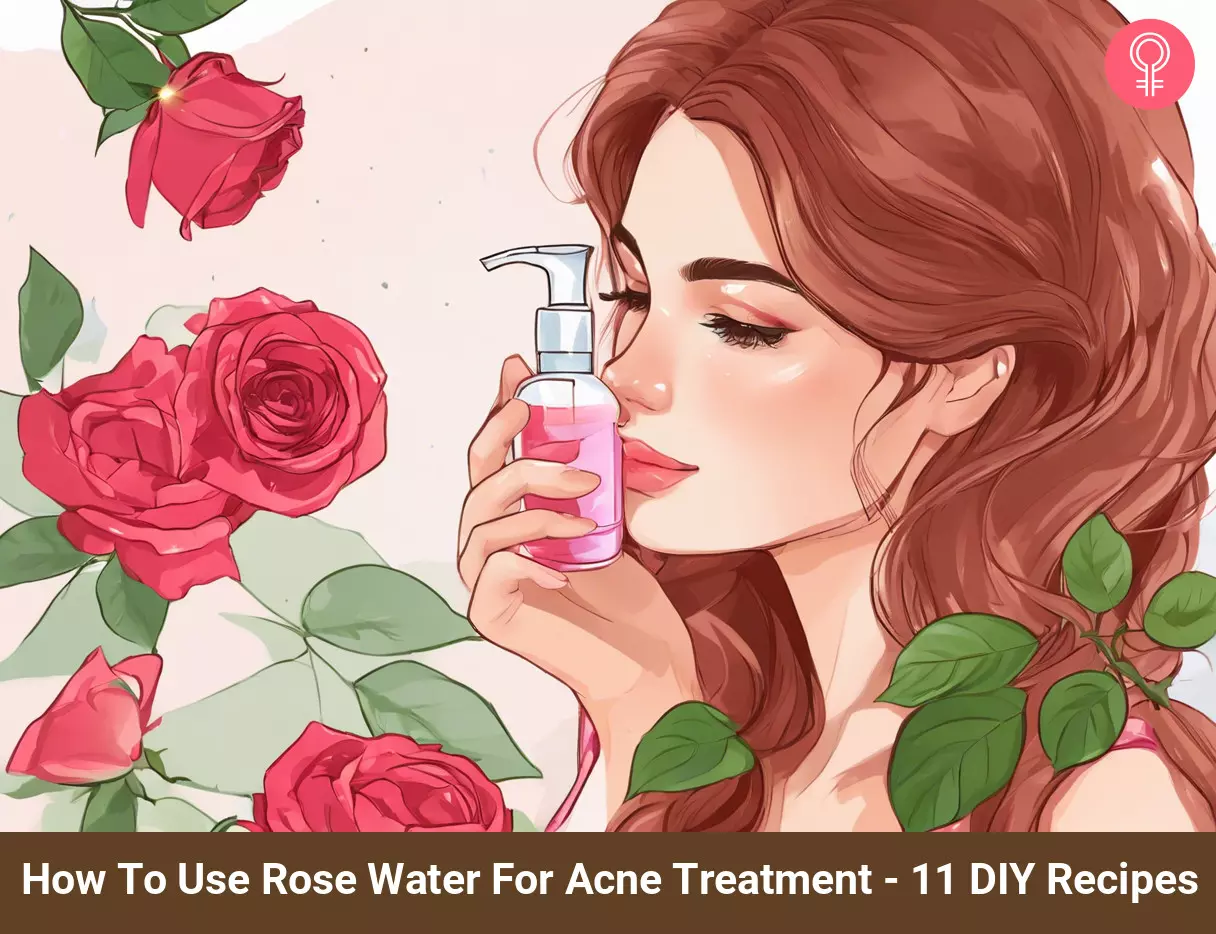
Image: Stable Diffusion/StyleCraze Design Team
Rose water is a natural remedy for oily, acne-prone skin. Check out this video to learn how you can use it to reduce skin oiliness and clear breakouts to get blemish-free skin.
Personal Experience: Source
StyleCraze's articles are interwoven with authentic personal narratives that provide depth and resonance to our content. Below are the sources of the personal accounts referenced in this article.
i. Rosewater Benefits For Hair And Skinhttps://abundantlyyou.wordpress.com/2015/06/21/rosewater-benefits-for-hair-and-skin/
References
Articles on StyleCraze are backed by verified information from peer-reviewed and academic research papers, reputed organizations, research institutions, and medical associations to ensure accuracy and relevance. Read our editorial policy to learn more.
- Antioxidant and potential anti-inflammatory activity of extracts and formulations of white tea rose and witch hazel on primary human dermal fibroblast cells
https://journal-inflammation.biomedcentral.com/articles/10.1186/1476-9255-8-27 - Anti-inflammatory and Antihistaminic Study of a Unani Eye Drop Formulation
https://www.ncbi.nlm.nih.gov/pmc/articles/PMC3661513/ - Rosa Damascene Mill. (Rose): A versatile herb in cosmetology
http://koreascience.or.kr/article/JAKO201935236776933.page - Skin anti‐inflammatory activity of rose petal extract (Rosa gallica) through reduction of MAPK signaling pathway
https://www.ncbi.nlm.nih.gov/pmc/articles/PMC6261181/ - Vitamin C in dermatology
https://www.ncbi.nlm.nih.gov/pmc/articles/PMC3673383/ - Antioxidant and anti-ageing activities of citrus-based juice mixture
https://pubmed.ncbi.nlm.nih.gov/26471635/ - Biochemical studies on a novel antioxidant from lemon oil and its biotechnological application in cosmetic dermatology
https://pubmed.ncbi.nlm.nih.gov/10568210/ - The 24-hour skin hydration and barrier function effects of a hyaluronic 1% glycerin 5% and Centella asiatica stem cells extract moisturizing fluid: an intra-subject randomized assessor-blinded study
https://www.ncbi.nlm.nih.gov/pmc/articles/PMC5560567/ - In-House Preparation and Standardization of Herbal Face Pack
https://www.researchgate.net/publication/320900643_In-House_Preparation_and_Standardization_of_Herbal_Face_Pack - 5: Final Report on the Safety Assessment of Sodium Sesquicarbonate Sodium Bicarbonate and Sodium Carbonate
https://journals.sagepub.com/doi/abs/10.3109/10915818709095491 - Epidermal and dermal effects of topical lactic acid
https://www.sciencedirect.com/science/article/abs/pii/S0190962296906027 - Acetic acid and the skin: a review of vinegar in dermatology
https://pubmed.ncbi.nlm.nih.gov/34350993/ - Sandalwood Album Oil as a Botanical Therapeutic in Dermatology
https://www.ncbi.nlm.nih.gov/pmc/articles/PMC5749697/ - SANDALWOOD OIL CAN BE A MIRACULOUS TACKLE ON SKIN AGING SKIN APPEARANCE AND WRINKLE SKIN-A REVIEW
https://www.researchgate.net/publication/330193718_SANDALWOOD_OIL_CAN_BE_A_MIRACULOUS_TACKLE_ON_SKIN_AGING_SKIN_APPEARANCE_AND_WRINKLE_SKIN-A_REVIEW - Honey in dermatology and skin care: a review
https://pubmed.ncbi.nlm.nih.gov/24305429/ - Pharmacological Effects of Rosa Damascena
https://www.ncbi.nlm.nih.gov/pmc/articles/PMC3586833/ - Exploring cucumber extract for skin rejuvenation
https://www.researchgate.net/publication/260228305_Exploring_cucumber_extract_for_skin_rejuvenation - Melaleuca alternifolia (Tea Tree) Oil: a Review of Antimicrobial and Other Medicinal Properties
https://www.ncbi.nlm.nih.gov/pmc/articles/PMC1360273/ - Melaleuca alternifolia (Tea Tree) Oil: a Review of Antimicrobial and Other Medicinal Properties
https://www.ncbi.nlm.nih.gov/pmc/articles/PMC1360273/
Read full bio of Dr. CP Thajudheen
Read full bio of Arshiya Syeda
Read full bio of Ramona Sinha
Read full bio of Monomita Chakraborty





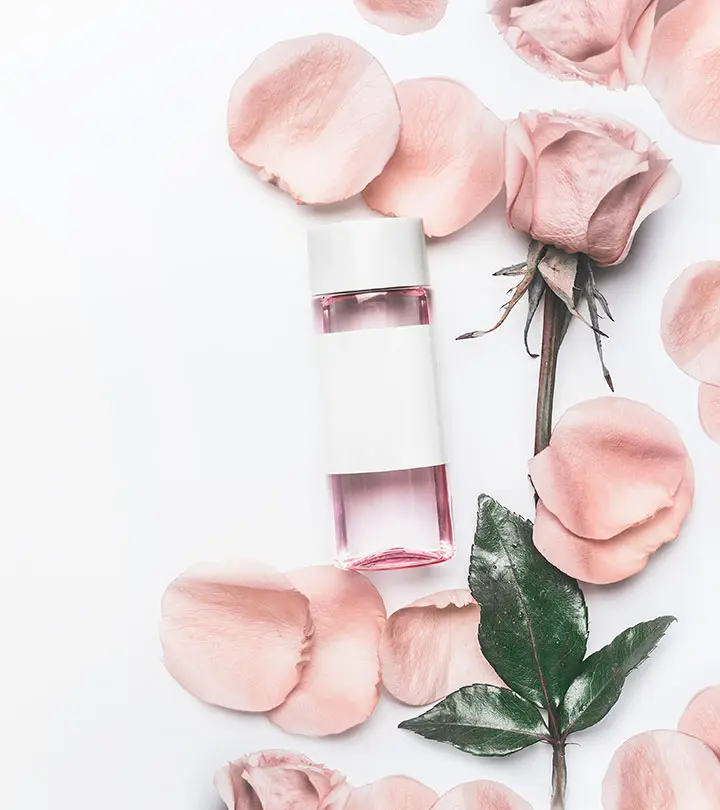
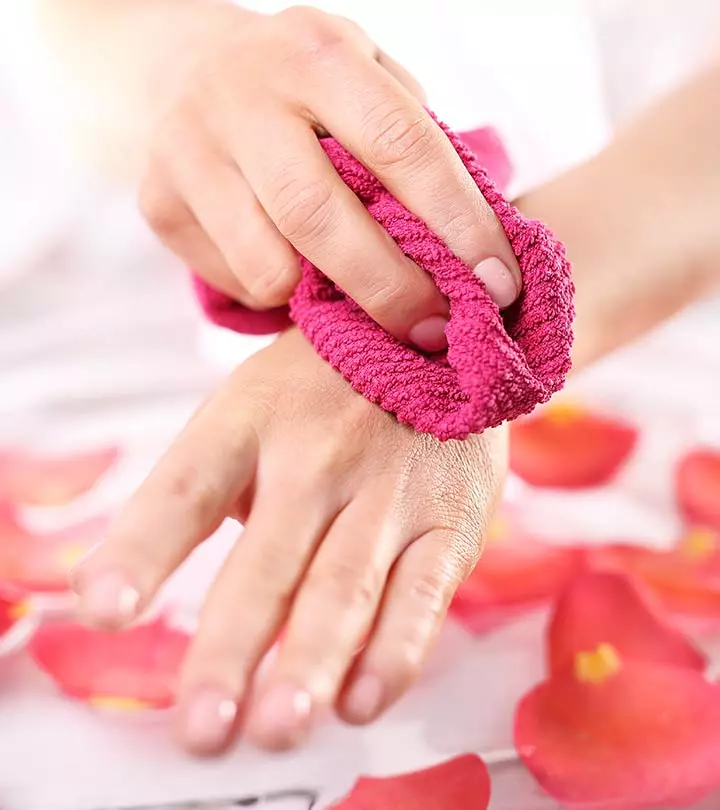
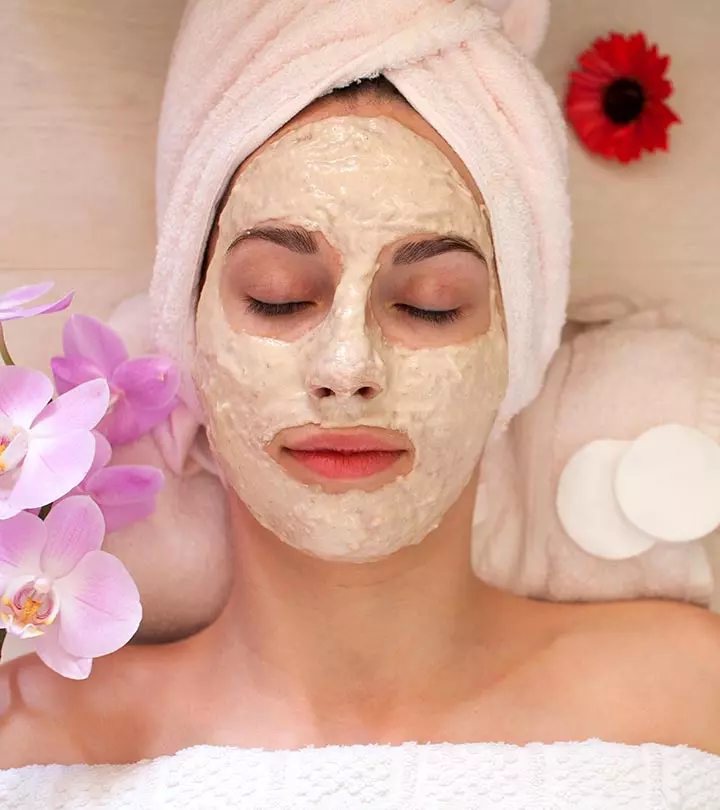
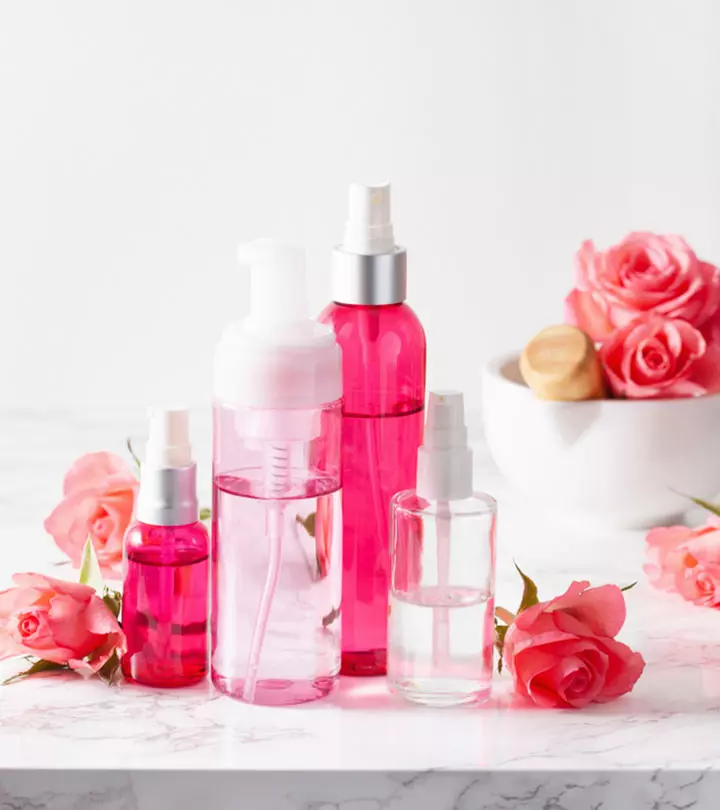
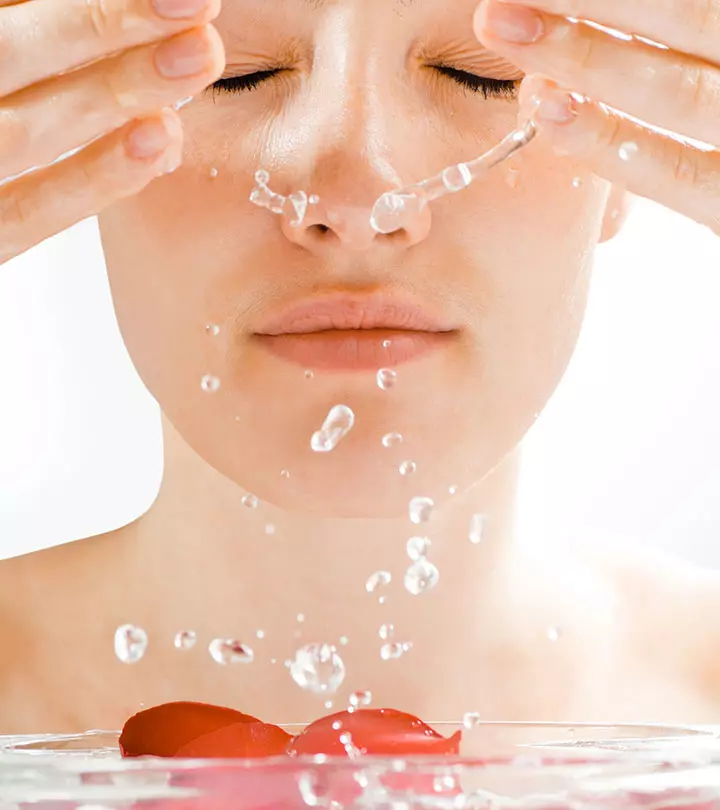
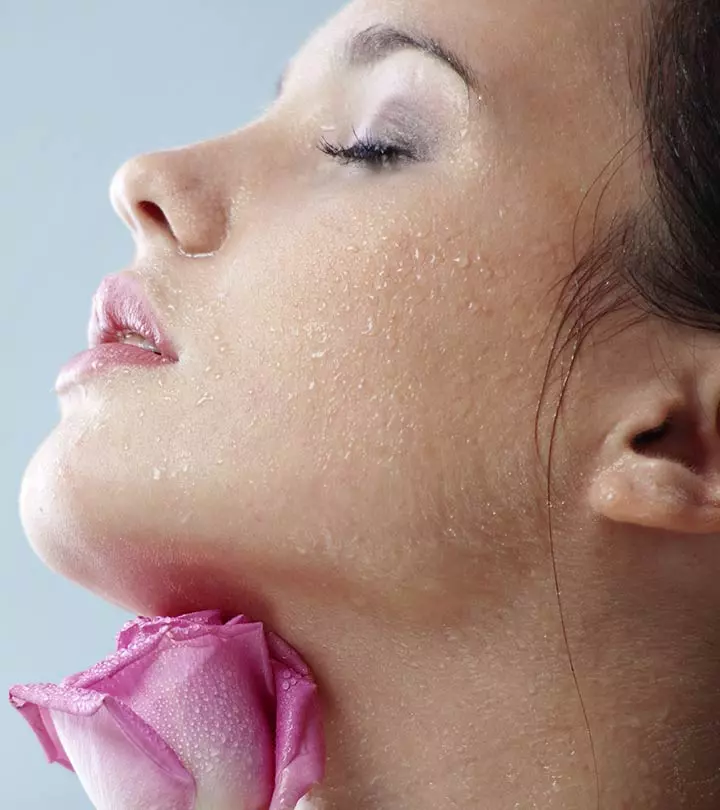
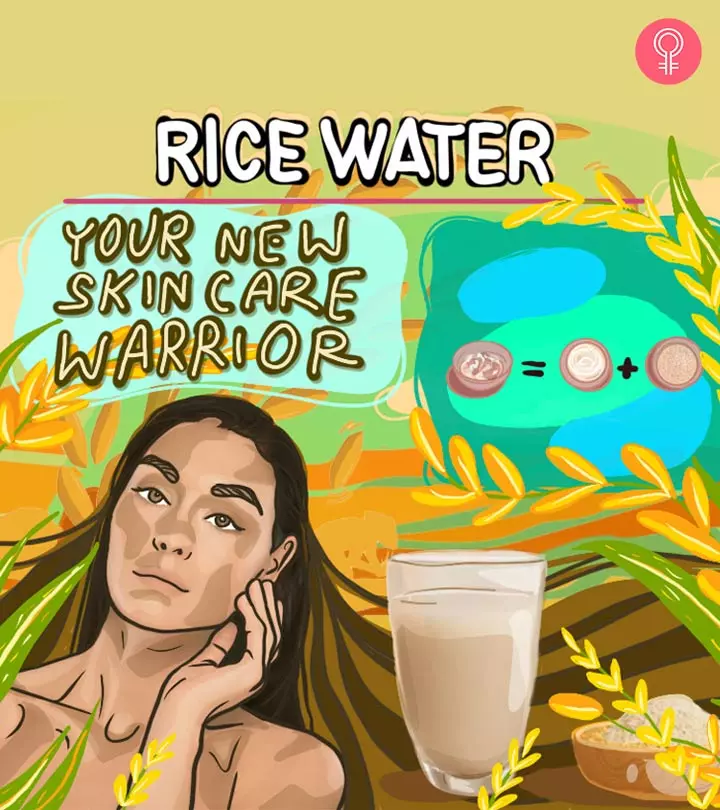
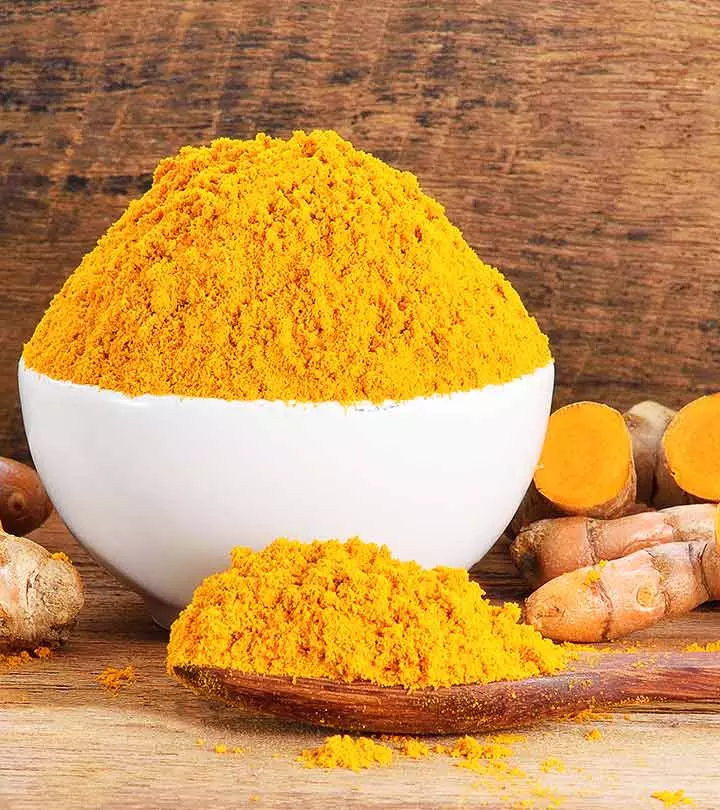

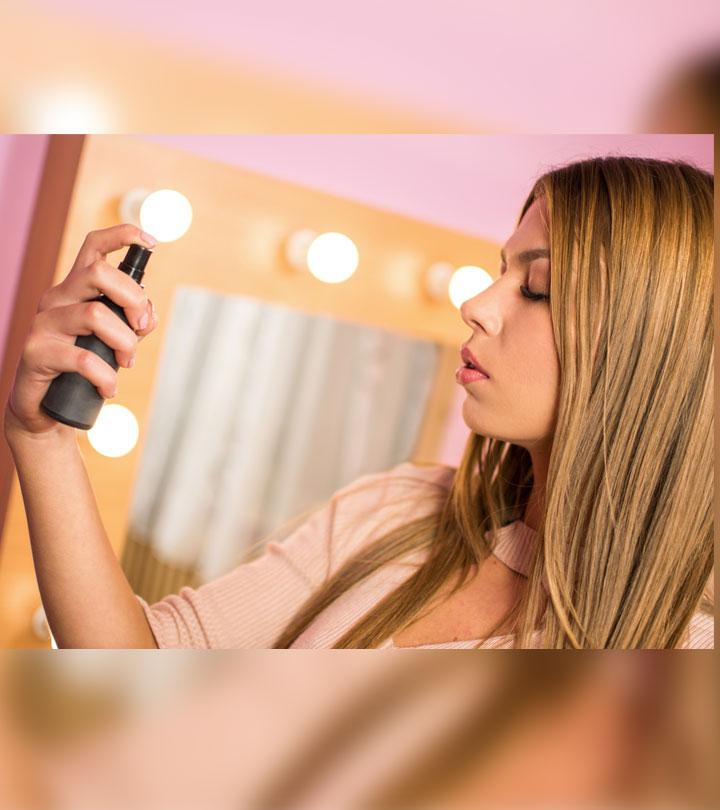

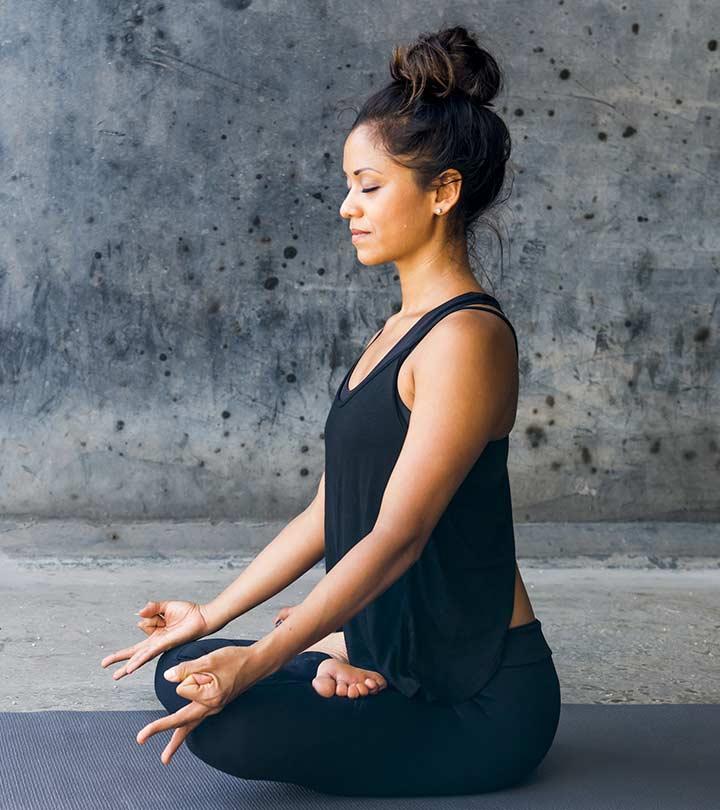


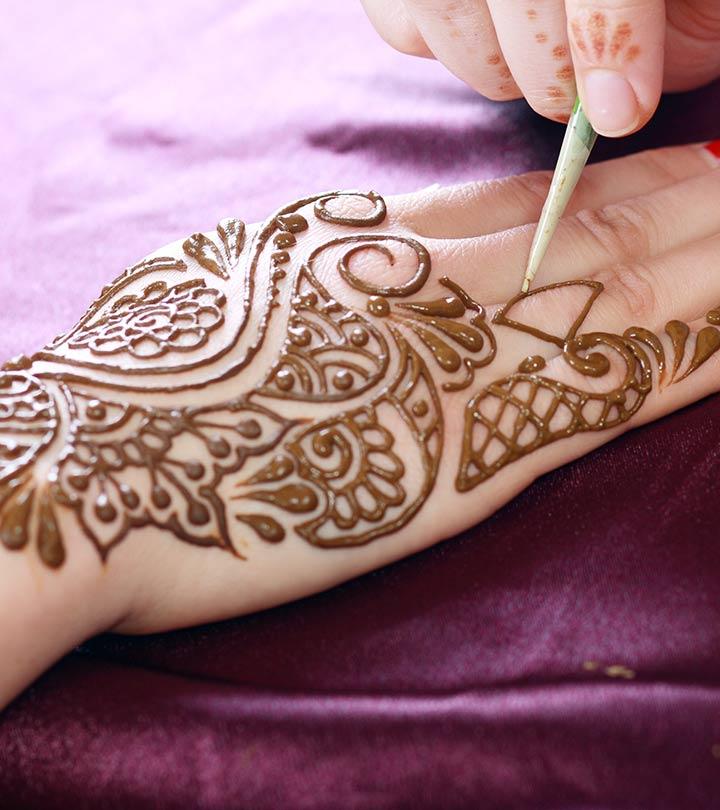

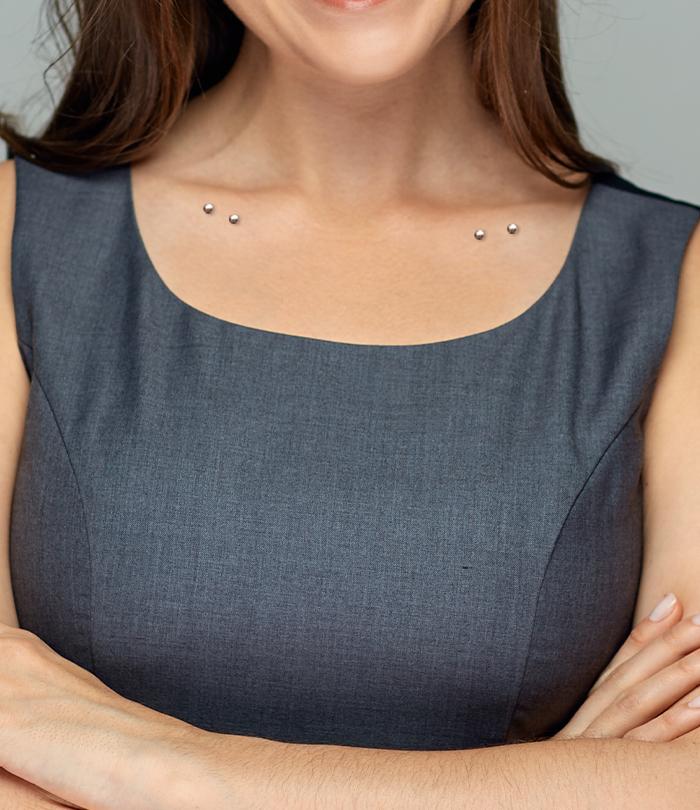


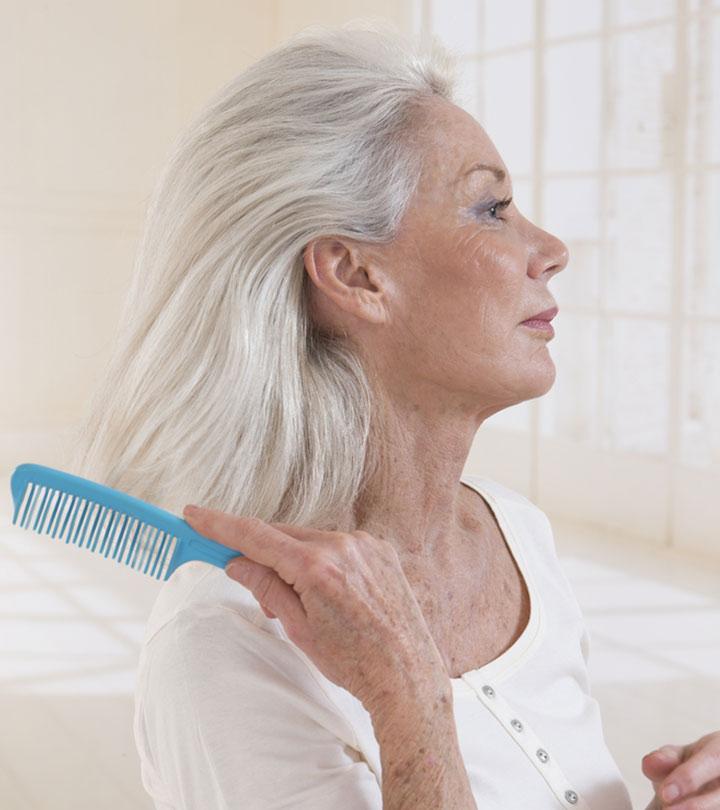
Community Experiences
Join the conversation and become a part of our empowering community! Share your stories, experiences, and insights to connect with other beauty, lifestyle, and health enthusiasts.